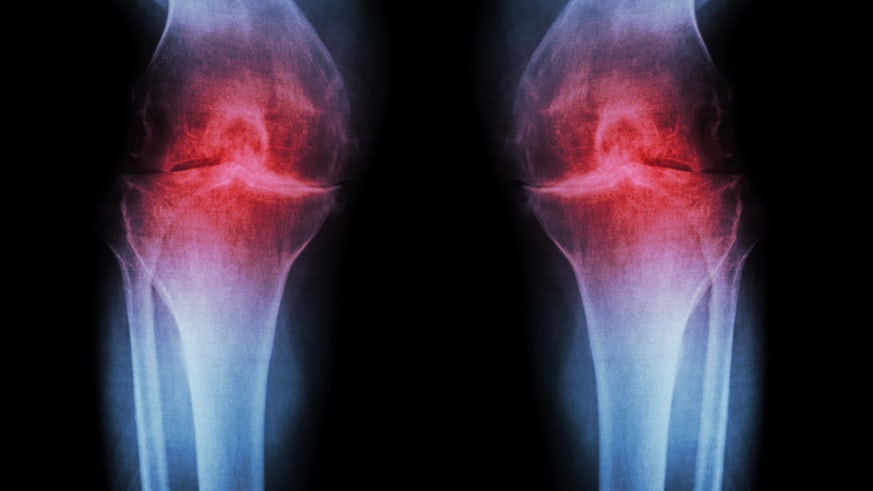Common drugs could prevent almost a million osteoarthritis cases
3 January 2018

Drugs designed for the treatment of central nervous system diseases could also be used to prevent the development of injury-induced arthritis, potentially saving the NHS around half a billion pounds a year.
Dr Deborah Mason and Dr Cleo Bonnet at Cardiff University discovered that a single injection of a common anticonvulsant drug, following injury, could relieve pain and swelling more than any other approved therapy and vastly reduce the inflammation, and bone and cartilage destruction, that leads to osteoarthritis.
Dr Deborah Mason from Cardiff University’s School of Biosciences and the Arthritis Research UK Biomechanics and Bioengineering Centre said: “Osteoarthritis affects around 8.5 million people in the UK and around 1 million of these cases are caused by injury...”

“As these figures rise with our aging population, and put further strain on our health system, there is an urgent need to find preventative treatments.”
Osteoarthritis - the most common form of joint disease - causes pain and disability. There are currently no disease modifying treatments for the condition, which is usually diagnosed after joint degeneration, when the disease is advanced. In many patients, osteoarthritis may have started years earlier, sometimes from an injury to their joint.
Joint injury leads to osteoarthritis in more than 50% of patients, usually around 5-15 years after the injury, when the only treatment is to relieve symptoms of pain and inflammation using non-steroidal anti-inflammatory drugs (NSAIDs) or pain-killers like paracetamol.
Dr Mason said: “We found that drugs developed for central nervous system disorders are able to prevent the release of a chemical implicated in chronic inflammation, potentially preventing pain and the degeneration that can cause osteoarthritis years down the line.”
The researchers already knew that a molecule called glutamate is released into the joint at very high concentrations in arthritis, and during joint trauma, triggering its cells to release a chemical implicated in inflammation. Their laboratory tests revealed that this process could be blocked by the drug NBQX which prevented the cells reacting to glutamate and releasing the inflammation-causing chemicals that cause joint degeneration.
The research is currently in the preclinical stage and has not yet been tested on human subjects. However, this class of drugs has been tested in humans for epilepsy, meaning that repurposing them to prevent osteoarthritis should provide a safe and fast route to clinical trials.
The research was funded by Arthritis Research UK and the Medical Research Council (MRC).
Share this story
The School has an international reputation for its teaching and research, and offers some of the top research-led bioscience curricula in the UK.




